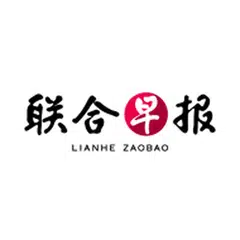US regulations strangling the life out of China concept stocks?
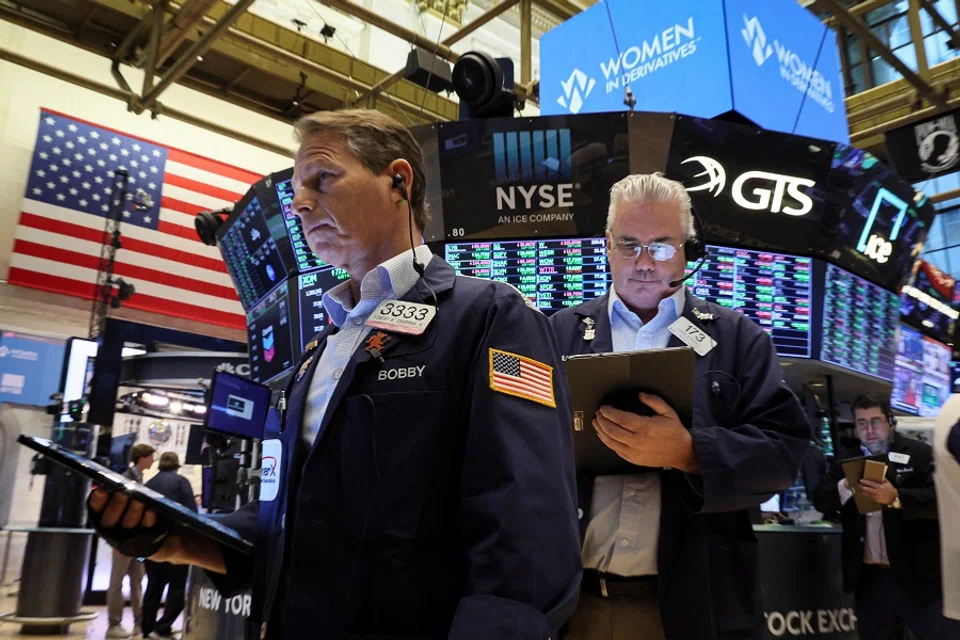
On 10 March, the US Securities and Exchange Commission (SEC) named five US-listed Chinese companies that could face delisting, leading to a plunge in prices for many major China concept stocks.
When trading ended on 14 March, the Nasdaq Golden Dragon China Index, which tracks the performance of Chinese concept stocks in the US, plummeted 12% to its lowest point in nine years. Alibaba and JD.com fell by at least 10%, while Pinduoduo plummeted by 21% and Baidu fell by 8.4%. Alibaba has plunged more than 30% this year, to its lowest level since June 2016.
The plunge in China concept stocks has also affected Hong Kong stocks and A-shares. The Hang Seng Index opened and closed low on 15 March, ending 5.72% down; the three mainland major stock indices also fell and topics such as "A-shares down" and "funds falling" were hot searches on Weibo.
At the same time, analysts at JPMorgan Chase downgraded at least ten Chinese internet companies, including JD.com, Alibaba and Tencent, to sell-equivalent ratings and called them "uninvestable" in the short term, casting a pall on the market.
Why do China concept stocks keep falling?
The SEC made its decision based on the Holding Foreign Companies Accountable Act (HFCAA), which sparked market panic when it was officially launched in March last year. Before the nightmare of falling China concept stocks could subside, the new list of companies on the chopping block set off a fresh wave of falling prices.
The HFCAA dates back to the Trump era, and states that beginning in 2021, if a company cannot prove that it is not owned or controlled by a foreign government, or if the Public Company Accounting Oversight Board (PCAOB) cannot conduct inspections of audits for three consecutive years, the company can be blocked from getting listed on any US trading market.
...from the start of this year, 184 China concept stocks have fallen by over 20%, while 53 have fallen by half or more.
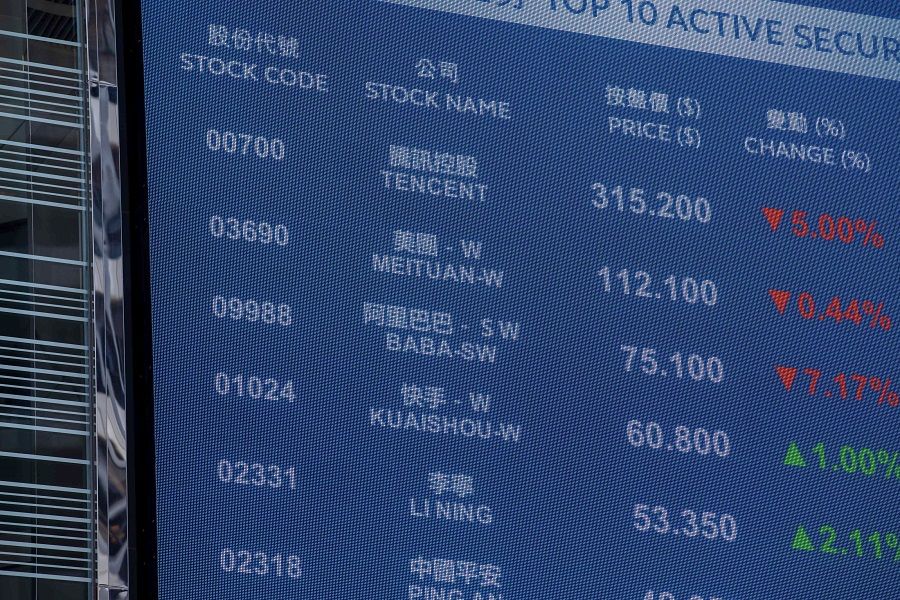
In December last year, the SEC said it had identified 273 companies with possible HFCAA non-compliance. In other words, these companies are at risk of getting delisted.
The HFCAA also requires foreign companies to make additional disclosures, such as proving that they are not owned or controlled by any foreign government, and disclosing the names of Chinese Communist Party (CCP) officials in their board of directors if any, and stating whether the articles of incorporation of their company contains any charter of the CCP, including the text of such a charter.
Hit by these regulations, China concept stocks - once popular among capital - started to lose their shine from last year. According to yicai.com, among the 280 China concept stocks that were listed in the US over the past year, 261 (or 93.21%) saw their share prices drop. And from the start of this year, 184 China concept stocks have fallen by over 20%, while 53 have fallen by half or more.
...the SEC's list will grow to include sectors of interest to both China and the US, such as IT, chips, logistics and autonomous vehicles, and the overall impact will be greater.
Over 70% of China concept stocks have fallen below US$5, with 69 below US$1; the average price of 280 stocks is only US$7.47 per share.
The SEC list on 10 March includes five companies - BeiGene, Yum China, Zai Lab, ACM Research and HutchMed - mainly in the medical, food and beverage, and semiconductor industries.
Some analyses have it that while this blacklist does not involve the core internet and technology industries, with more China concept companies announcing financial results for the fourth quarter of 2021, the SEC's list will grow to include sectors of interest to both China and the US, such as IT, chips, logistics and autonomous vehicles, and the overall impact will be greater.

The inherent contradictions between China concept stocks and the HFCAA
Why are China concept stocks so intimidated by the implementation of HFCAA? While it is not specifically targeted at Chinese companies, clauses in the Act have inherent conflicts with China's legal regulations.
The Provisions on Strengthening Confidentiality and Archives Administration of Overseas Issuance and Listing of Securities put up by the China Securities Regulatory Commission (CSRC), the State Secrecy Bureau and the State Archives Administration in October 2009 states: "Any archives, including workpapers, which are created in mainland China by the securities company and securities service institution providing relevant securities service in the course of any overseas issuance and listing of the securities, shall be stored in mainland China.
"In the event that the workpapers referred to in the preceding paragraph involve any state secrets, national security or vital interests of the State, such workpapers shall not be stored in, processed with or transferred via any non-confidential computer information systems; without the approval of the relevant in-charge authorities, such workpapers shall not be carried or shipped overseas, or delivered to overseas institutions or individuals through any means such as information technology."
...if they obey the HFCAA, they need to accept inspections of their accounting workpapers by the PCAOB in violation of the requirements of the Chinese regulatory authorities; but if they obey China's regulations, they are non-compliant with the HFCAA and risk getting delisted.
As the China-US trade war began, in December 2019 China tightened regulations on overseas securities information. Its revised Securities Law states: "Overseas securities regulatory bodies shall not directly conduct investigation and evidence collection activities within the territory of the People's Republic of China. Without the consent of the securities regulatory authority under the State Council and relevant competent departments under the State Council, no entity or individual may provide documents and materials relating to securities business activities overseas without prior authorisation."
And on 24 December 2021, the China Securities Regulatory Commission declared: "Where an overseas securities regulatory agency intends to investigate into and collect evidence regarding overseas offering and listing activities of a domestic company, it may, under relevant cross-border securities regulatory cooperation mechanism, send a request for assistance to the securities regulatory agency under the State Council, who may provide necessary assistance in accordance with law. Domestic institutions or individuals shall report to the securities regulatory agency under the State Council if they are subject to requests from an overseas securities regulatory agency for relevant documents and materials for evidence-gathering purposes, and shall not submit such information without approval from the securities regulatory agency under the State Council and competent authorities under the State Council."

For US-listed Chinese companies, this means that if they obey the HFCAA, they need to accept inspections of their accounting workpapers by the PCAOB in violation of the requirements of the Chinese regulatory authorities; but if they obey China's regulations, they are non-compliant with the HFCAA and risk getting delisted.
When the HFCAA first came out, Caixin quoted Liu Yan of the law faculty at Peking University, who said that according to US regulations, the PCAOB should inspect registered auditors every one or three years, but previously due to various reasons it did not inspect China's agencies for over ten years, apart from once observing China's inspections. The regulatory authorities of China and the US have also been in regular contact.
The US will no longer allow Chinese tech companies to raise funds through its capital market.
However, Luckin Coffee's accounting scandal has led to a loss of faith in the market, triggering a serious credit crisis further magnified by the ongoing China-US trade war.
In response to the SEC's list of stocks that might be delisted, the CSRC issued an immediate response, saying on 11 March, "We respect supervision from overseas watchdogs on accounting firms for the purpose of improving the financial disclosure quality of listed firms, but stand firmly against the wrong practice of politicising securities regulation by certain forces."
Analyses have it that the SEC's underlying motives are linked to China-US competition in areas of technology, data and even national security. The US will no longer allow Chinese tech companies to raise funds through its capital market. At the same time, China also needs to enforce stricter management of its own tech companies to prevent the outflow of its core data.
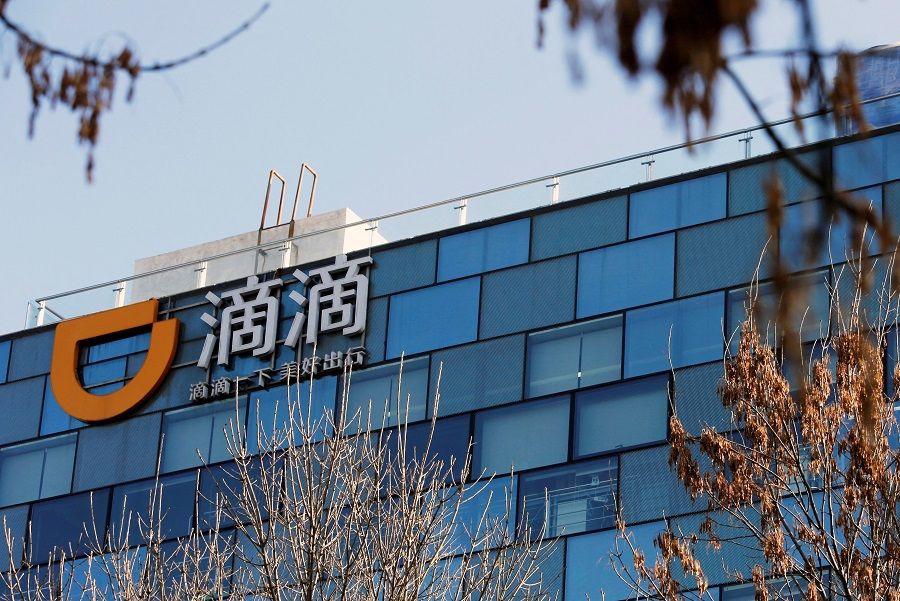
A total of 62 Chinese concept stocks fell more than 20% recently, with Didi Chuxing, which came under close scrutiny from Chinese regulators less than 48 hours after its low-key US listing, recording the biggest plunge.
An industry insider pointed out in a BBC Chinese report that the probe into Didi was related to the HFCAA as Didi has a large number of users and possesses a government licence to produce high-precision maps. From the Chinese government's perspective, this presents enormous risks.
In addition, the ongoing Russia-Ukraine war shows no signs of abating and China is also embroiled in the situation and risks being sanctioned. The US has also repeatedly warned China against helping Russia.
On 13 March, US national security adviser Jake Sullivan warned Beijing that "there will absolutely be consequences for large-scale sanctions, evasion efforts or support to Russia to backfill them".
US Secretary of Commerce Gina Raimondo said on 8 March that the Biden administration can "essentially shut" down Chinese companies such as Semiconductor Manufacturing International Corporation if they defied US sanctions by continuing to supply chips and other advanced technology to Russia, and be prevented from "using our equipment and our software".
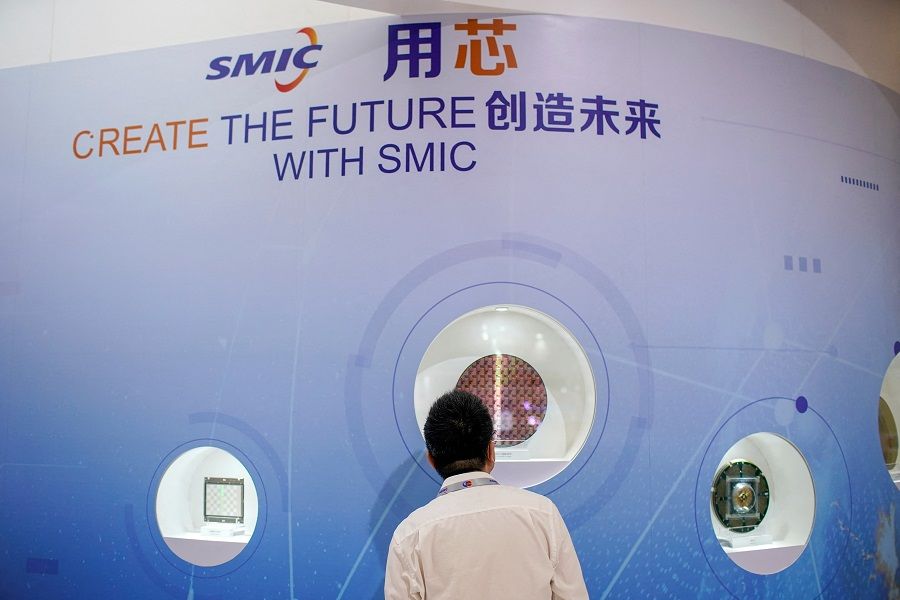
Veteran investor Mark Mobius, famously known as the Godfather of Emerging Markets, told Bloomberg in an interview that the selloff in American depositary receipts (ADRs, shares of non-US firms traded on US exchanges) "can get worse if there are implications for China as regards to Russian sanctions".
JPMorgan Chase said in a statement on 14 March: "Due to rising geopolitical and macro risks, we believe a large number of global investors are in the process of reducing exposure to the China Internet sector, leading to significant fund outflows from the sector."
...all Chinese concept stocks have now become "uninvestable" assets that everyone wants to get rid of.
The end of the Chinese concept stocks era
Quoting information from position papers disclosed by the SEC, Caixin reported that US institutional investors have been selling off Chinese concept stocks since the fourth quarter of 2020. In the third quarter of 2020, the market value of US mutual fund and pension fund holdings was made up of 7% of Chinese concept stocks. This figure dropped to 5.9% in the fourth quarter of 2020. Entering 2021, this proportion further decreased from 5.5% in the first quarter to 4.8% in the second quarter, 4.2% in the third quarter, and 4.1% in the fourth quarter.
A senior investment banker covering Chinese concept stocks said that all Chinese concept stocks have now become "uninvestable" assets that everyone wants to get rid of. He said that the era of Chinese concept stocks has ended and that what comes next will be completely different.
...from a political, business or corporate perspective, the voluntary or involuntary delisting of US-listed Chinese concept stocks from the US by 2024 is a likely trajectory.
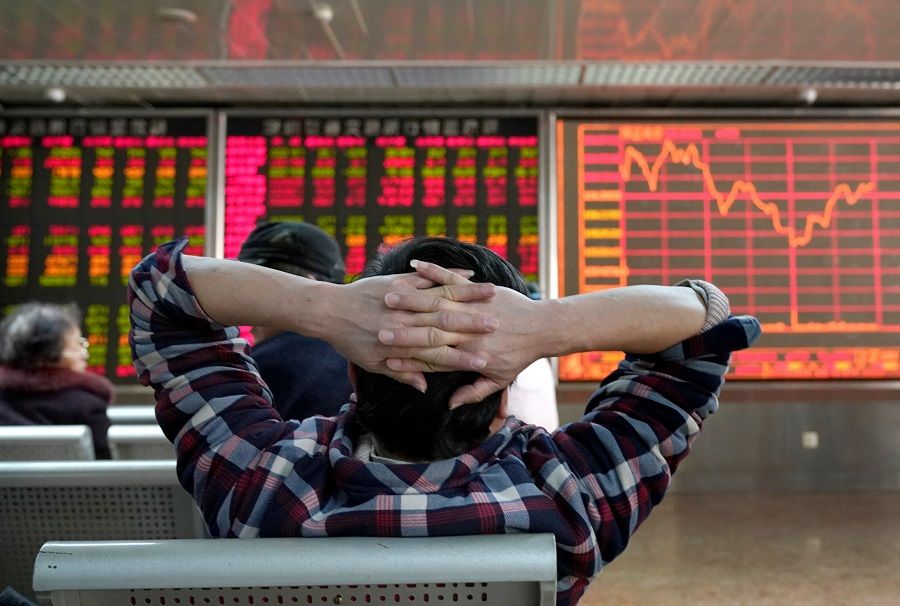
Other analysts assessed that from a political, business or corporate perspective, the voluntary or involuntary delisting of US-listed Chinese concept stocks from the US by 2024 is a likely trajectory.
After Chinese concept stocks are delisted from the US, they can make a return via privatisation and relisting, dual primary listing or a secondary listing. At the moment, 15 US-listed Chinese concept stocks have opted for secondary listings in Hong Kong, while XPeng and Li Auto have chosen dual primary listings.
Amid increasing uncertainty in the external environment, it is expected that more US-listed Chinese concept stocks will actively opt for a primary or secondary listing in Hong Kong to better counteract overseas risks.
Hong Kong the biggest winner?
On 19 November 2021, the Stock Exchange of Hong Kong Limited, a wholly-owned subsidiary of the Hong Kong Exchanges and Clearing (HKEX), published the conclusions to its consultation on the proposals to enhance and streamline the listing regime for overseas issuers, including lowering and relaxing the threshold for secondary listings and broadening the acceptance of dual primary listings.
As Hong Kong is constantly facilitating the return of Chinese concept stocks to Hong Kong, many analysts think that Hong Kong is becoming a shelter for Chinese concept stocks after their exit from the US. Amid increasing uncertainty in the external environment, it is expected that more US-listed Chinese concept stocks will actively opt for a primary or secondary listing in Hong Kong to better counteract overseas risks.
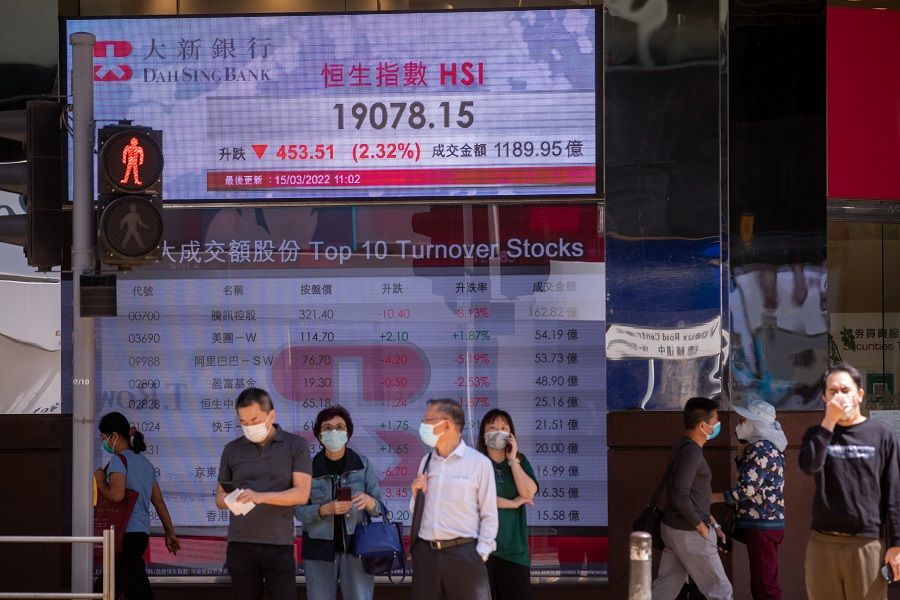
The Wall Street Journal reported that shares of the HKEX rose 3% on 11 March as Hong Kong is expected to benefit from the prospect of a possible exit of Chinese concept stocks from the US stock market. Goldman Sachs recently estimated that if all dual-listed Chinese enterprises turned to Hong Kong, that could add around US$2.6 billion of average daily turnover to the city, while new IPOs could add another US$1.4 billion. This could add up to around one-fifth of Hong Kong's turnover.
According to a Reuters report of 11 March, HKEX statistics show that the net inflow of Southbound funds amounted to HK$3.819 billion. Bruce Pang Ming, head of Macro and Strategic Research at China Renaissance Securities (Hong Kong), pointed out that although Hong Kong stocks were implicated by the fall of Chinese concept stocks, the situation stabilised in the afternoon because of the huge inflow of Southbound funds that day. He said that Southbound investors were bottom fishing and buying stocks thinking that the Hang Seng Index was about to cross the 20,000 mark.
However, as a result of multiple shocks from China-US competition and geopolitics, information- and technology-based Chinese concept stocks may not recover in the short term even if they have the Hong Kong route as a buffer. The exit of Chinese concept stocks from the US and its re-emergence will shake up the market, and the real test is yet to come.
Related: Will China concept stocks pull out of the US completely? | New regulations to thwart Chinese companies' overseas listings? | China's AI giant SenseTime blacklisted: Is China-US financial decoupling taking place? | Misbehaving US-listed Chinese enterprises and their gambler attitudes | HKEX a refuge for Chinese companies fleeing US stock exchanges?
